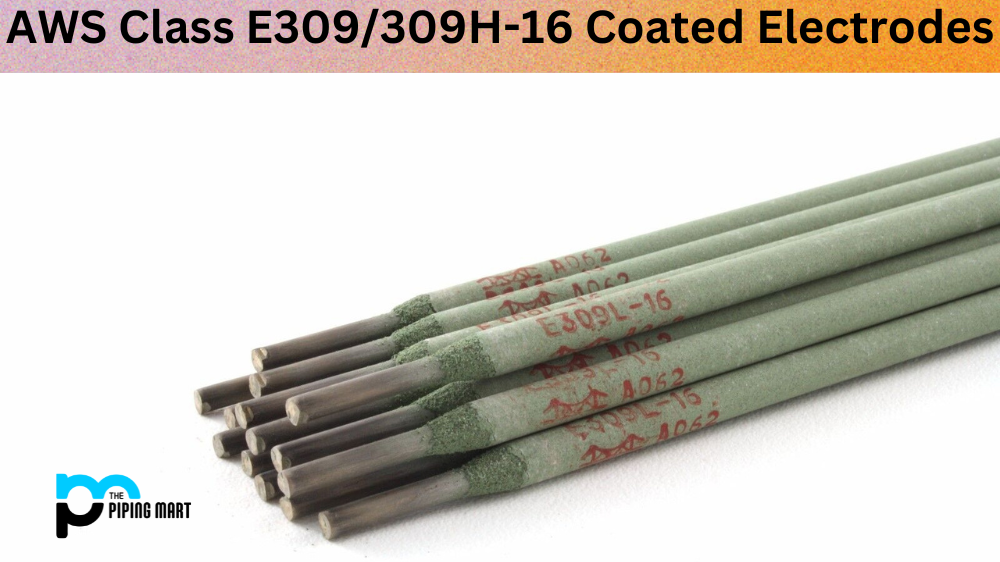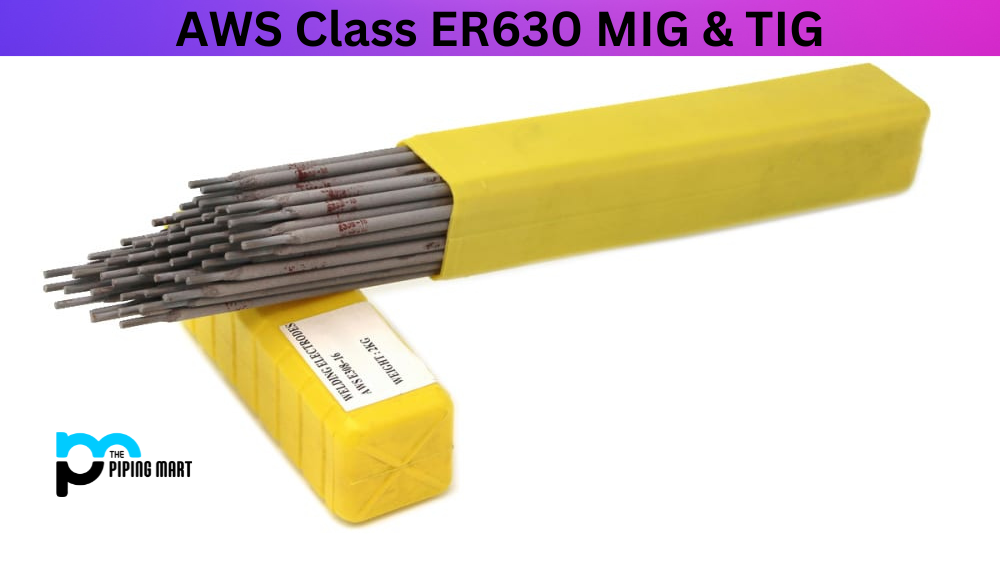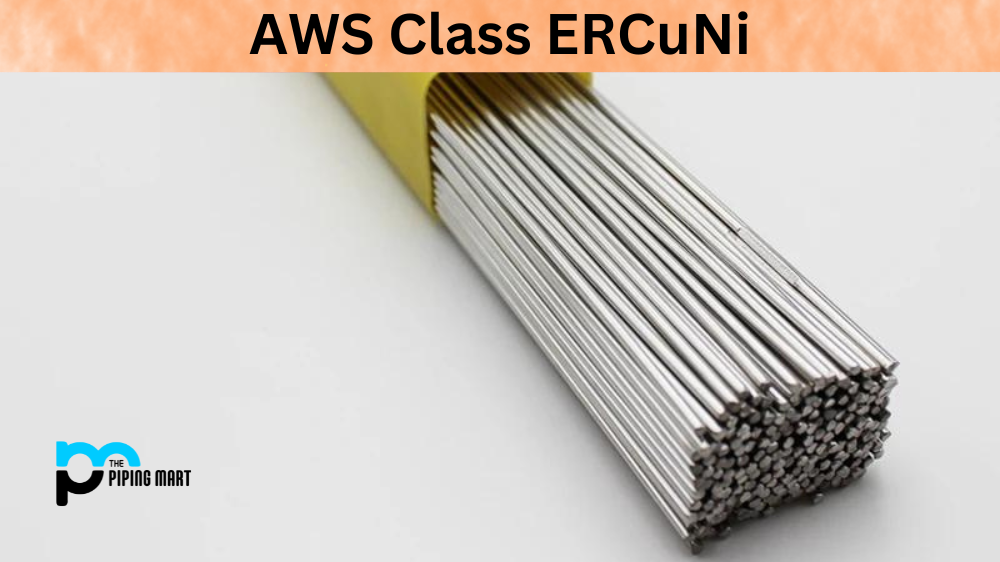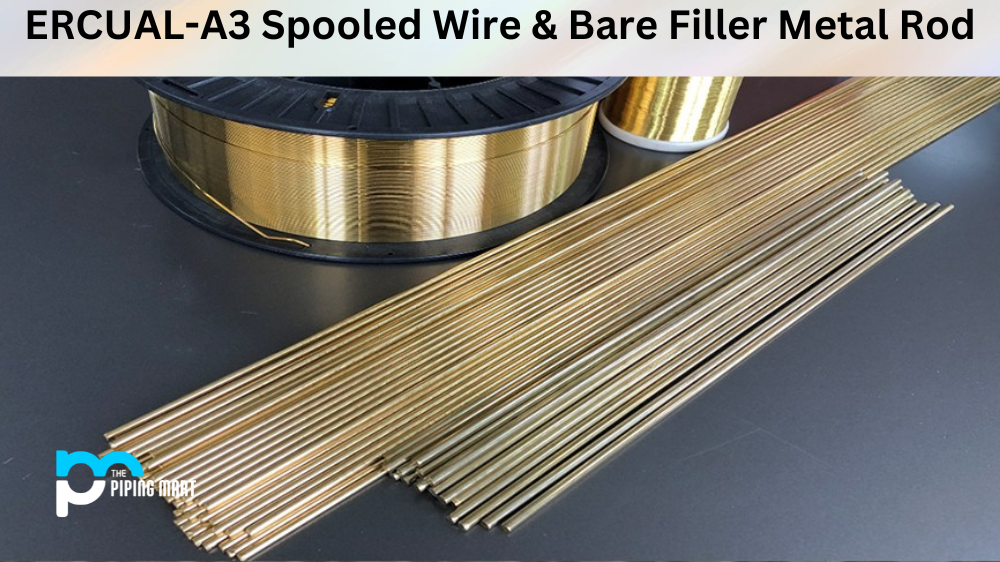AWS Class E309/309H-16 coated electrodes are widely used in welding applications that involve joining stainless steel to mild steel and in surfacing and overlaying operations. They are classified as austenitic stainless steel electrodes, and their composition and physical and mechanical properties make them ideal for use in various environments and applications. This blog post will closely examine the properties and applications of AWS Class E309/309H-16 coated electrodes.
What are AWS Class E309/309H-16 Coated Electrodes?
AWS Class E309/309H-16 Coated Electrodes are a type of carbon steel electrode used in gas metal arc welding (GMAW) processes. These electrodes are ideal for joining stainless steels to mild or low alloy steels and have excellent usability, producing strong welds with good mechanical properties. They protect against oxidation and hot cracking at high and low temperatures. The coated electrodes resist impact toughness due to their protective slag layer, providing reliable performance in harsh environments. Additionally, they can be used for vertical up welding and on single or multiple pass applications on non-critical joints.
E309/309H-16 Welding Electrodes Composition
AWS Class E309/309H-16 wire are composed of Chromium-Nickel austenitic stainless steel, with a chemical composition typically includes 23-25% Chromium, 12-14% Nickel, and 0.03% Carbon. The electrodes also contain small amounts of Manganese, Silicon, and Phosphorus, which improve their weldability and performance.
| C | Cr | Ni | Mo | Mn | Si | P | S | Cu |
| 0.04 | 22.0-25.0 | 12.0-14.0 | 0.75 | 0.5-2.5 | 1.00 | 0.04 | 0.03 | 0.75 |
E309/309H-16 Coated Electrodes Physical Properties
AWS Class E309/309H-16 welding wire resist high temperatures and thermal shock. They also exhibit good corrosion resistance and are non-magnetic in the annealed condition. In terms of physical properties, these electrodes have a typical tensile strength of 85,000-95,000 psi and yield strength of 60,000-70,000 psi.
E309/309H-16 Welding Electrodes Mechanical Properties
In addition to their excellent physical properties, AWS Class E309/309H-16 welding electrodes have impressive mechanical properties. They exhibit good ductility and toughness, making them resistant to cracking, even in high-stress applications. The electrodes have a typical elongation of 30-40%, with a Charpy V-notch impact value of 50-60 ft-lbs at room temperature.
E309/309H-16 Coated Electrodes Trade Name
| Class | UNS | Oxford Alloys |
| E309/309H-16 | W30910 | Alloy 309/309H-16 |
E309/309H-16 Welding Electrodes Parameters
| Diameter | Process | Volt | Amps (flat) | Amps (V/OH) | |
| in | (mm) | ||||
| 3/32 | (2.4) | SMAW | 24-28 | 70-85 | 65-75 |
| 1/8 | (3.2) | SMAW | 26-30 | 85-110 | 80-90 |
| 5/32 | (4.0) | SMAW | 28-32 | 110-140 | 100-120 |
| 3/16 | (4.8) | SMAW | 28-32 | 120-160 | 110-130 |
E309/309H-16 Coated Electrodes Uses
AWS Class E309/309H-16 electrodes are used in various applications, including welding and repairing stainless steel equipment and components used in the food processing, chemical processing, and pharmaceutical industries. They are also used in constructing heat exchangers, furnaces, and incinerators, where their high temperature and thermal shock resistance are particularly valuable.
E309/309H-16 Welding Electrodes Heat Treatment
AWS Class E309/309H-16 filler metal do not normally require post-weld heat treatment, although preheating is sometimes recommended to reduce the risk of cracking. If a heat treatment is required, the electrodes can be annealed at 1900-2100°F for 30 minutes per inch of thickness, followed by rapid air cooling.
E309/309H-16 Coated Electrodes Corrosion Resistant
AWS Class E309/309H-16 filler wire exhibit good resistance to various corrosive environments, including sulfuric acid, phosphoric acid, and acetic acid. They are also resistant to pitting and crevice corrosion.
Conclusion
AWS Class E309/309H-16 coated electrodes are versatile and reliable welding electrodes with unique physical and mechanical properties, making them ideal for various applications. Their excellent resistance to high temperatures, thermal shock, corrosive environments and good weldability and toughness make them a popular choice for professionals in many industries. Understanding their composition, properties, and uses can help you choose the right electrode for your welding needs.

Abhishek is a seasoned blogger and industry expert, sharing his insights and knowledge on various topics. With his research, Abhishek offers valuable insights and tips for professionals and enthusiasts. Follow him for expert advice on the latest trends and developments in the metal industry.




